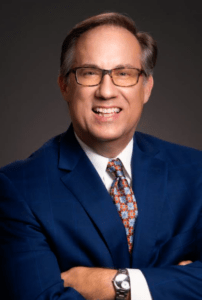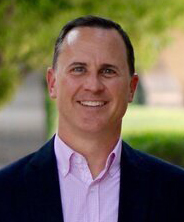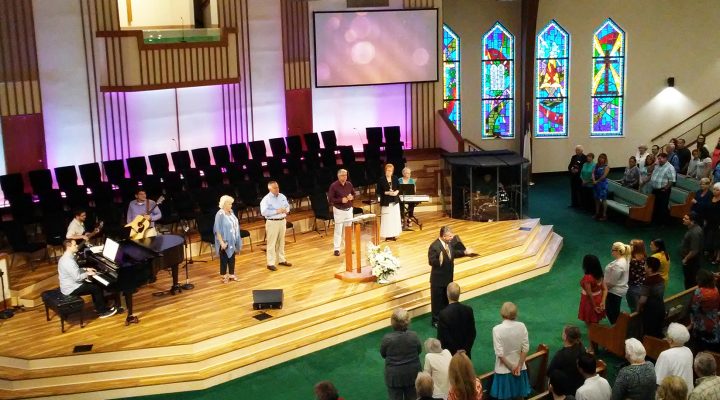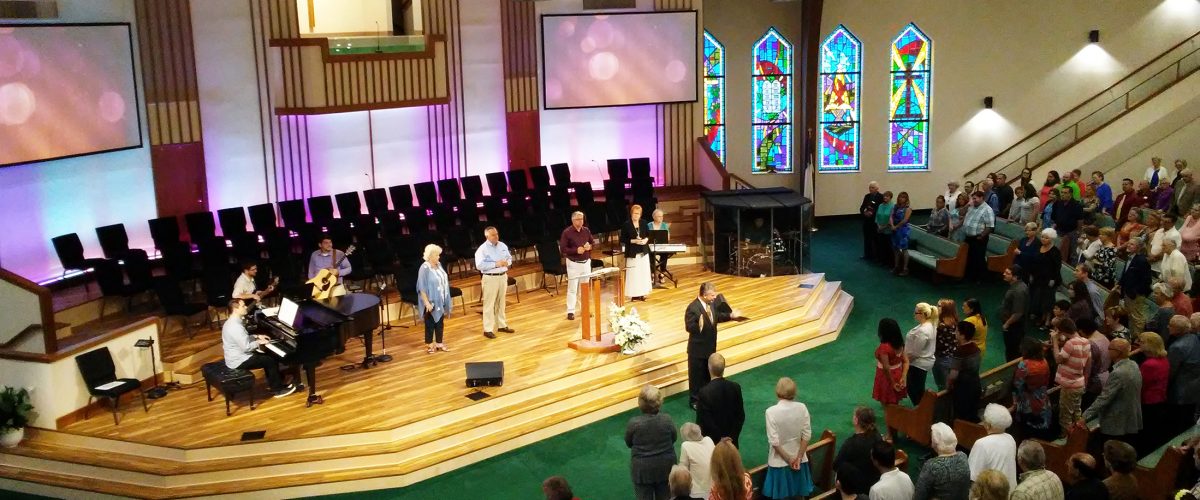Fostering church cultures where both pastors and church musicians flourish requires discerning the perspectives and challenges of the other, Methodist pastor Andy Stoker said during a webinar about pastor-musician working relationships.

Doug Haney
“Creating a culture whereby a pastor and church musician can thrive is really about knowing and recognizing the gifts each one brings beyond their specific role,” said Stoker, senior pastor at Central United Methodist Church in Albuquerque.
Stoker and Anne Scalfaro, senior pastor at Calvary Baptist Church in Denver, were hosted in the online discussion by Doug Haney, executive director of Polyphony Music Resources, which provides tools to nurture the ministry and well-being of church musicians. He also serves as interim minister of music at Oakland Baptist Church in Rock Hill, S.C., after retiring last year as associate pastor at Wilshire Baptist Church in Dallas.
Polyphony has spent two years interviewing church musicians about the tools they will need to thrive during the coming decade, Haney explained. “One of the themes that emerged from almost all of these 100 conversations is that in order to flourish, musicians need positive and productive work relationships, especially with their pastor or supervisor.”

Andy Stoker
Such relationships are possible when each goes the extra mile in appreciating how their different gifts can be mutually beneficial, said Stoker, who is ordained through The United Methodist Church.
“For example, I want to be seen as a good teacher. Well, how does my teaching role and the thing that gives me passion about teaching, how can that be enhanced by a church musician who has a totally different process of potentially seeing how teaching works?” he asked. “Can I sit at a choir rehearsal and learn something from church musicians that I can take into the classroom, that I can take into my one-on-one conversations and begin to see how those two roles are woven together in really substantive ways?”
It’s also important for pastors to comprehend that musicians are called not merely to perform but also to proclaim, Stoker said. “If the pastor and church musician role are both proclamation, then it is about a full enhancement of right and left brain, it is the full enhancement of the fullness of humanity — head, heart and soul — that can build on this culture of wholeness.”
But achieving that cohesion also demands a willingness to work through the frequent antagonism between musicians and pastors, he added. “In so many ways, the pastor-musician context or working relationship has been based strangely on an adversarial kind of understanding. ‘You’re in my spotlight,’ or ‘I’m not paying attention to you,’ or ‘You’re not paying attention to me.’ That kind of dance halts a working relationship in critical ways.”

Anne Scalfaro
Establishing meaningful connections also requires pastors and musicians to interact with each other outside the Sunday morning setting, Scalfaro said. “I’ve been at choir rehearsals or choir parties — seeing each other in those elements. Also, it’s going to coffee and not talking about worship, but just asking how they’re doing.”
Church leadership would be wise to invite musicians into conversations on topics not specifically related to music, she advised. “In our case, we do some theme development for an entire year, and we invite the musician into that space to say, ‘What are you hearing and sensing in the congregation? Where are people struggling? Where’s the challenge? Where’s the comfort?’ We are getting their wisdom and allowing their voice to help shape the direction of where we’re going because they’re tapped into people I’m not necessarily tapped into.”
Haney asked his guests what they wish musicians knew about senior pastors’ roles beyond Sunday worship.
Scalfaro said she would like musicians to understand the multiplicity of responsibilities pastors have beyond sermon preparation and preaching. “Senior pastors, on any given day, we are wearing a number of hats, pivoting from worship to a budget meeting, to a pastoral care visit to something breaking in the building. It’s just a constant pivoting and a constant level of responsibility in many different areas.”
Nurturing relationships over coffee can help communicate those demands and help musicians understand “that if I’m a little bit distracted or if I am not totally zoned in, it’s because of those different responsibilities,” she said.
Stoker agreed, adding “I would love church musicians to know they are not forgotten” despite the quintessential view by some they are afterthoughts compared to budget meetings or pastoral care.
“And I think church musicians need to know that beyond the performance, there is a want from pastors to be better team players and want to be in broader conversations about how music plays a role in the church’s life.”
That role cannot be understated, Scalfaro said.
“I think of worship as sort of the heartbeat of church life. It’s the place where we all gather together. It’s the anchor,” she said. “The connection point is music, it’s the thread that weaves the entire service together. … Music does something the spoken word can’t do in terms of how it touches the soul and speaks to people.”
Related articles:
One sweet song came out of COVID: The revival of Polyphony Music Resources
Making peace with my internal worship war | Opinion by Doug Haney
Why church musicians become scapegoats in anxious church systems and how to make personnel changes gracefully | Opinion by Doug Haney


